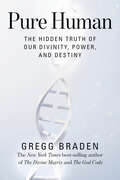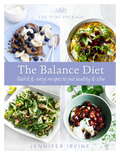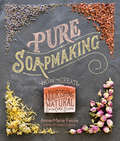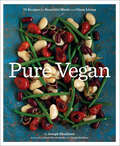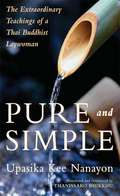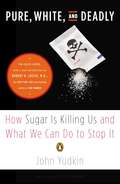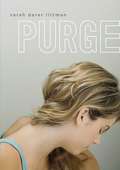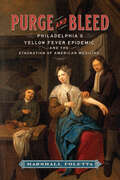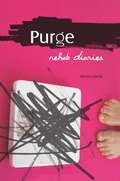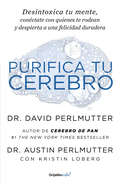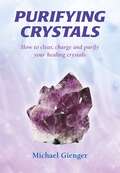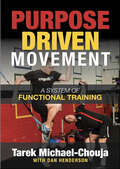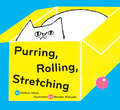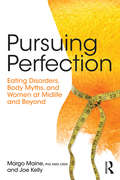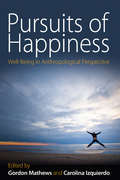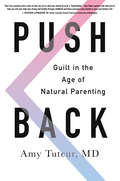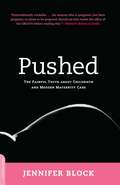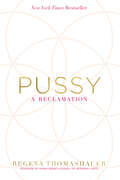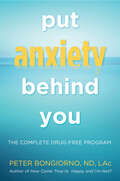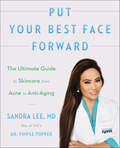- Table View
- List View
Pure Human: The Hidden Truth of Our Divinity, Power, and Destiny
by Gregg BradenIn an age where technologies such as AI threaten to supplant human intelligence, an award-winning scientist offers a radical new view of our innate human technology and what we're truly capable of.There are rare moments in time when we make choices that irreversibly change the world, and our lives, forever. Today is one of those moments.Scientists, engineers and philosophers alike warn us that without a radical shift in our thinking, we are on track to be the last generation of pure humans that the world will know. Within a single generation we will devolve into a hybrid species of synthetic bodies, Artificial Intelligence (AI), and computer chips that limit our ability to think, to love, and to adapt to the conditions of the emerging world in a healthy way. In doing so we will also lose our capacity for emotion, empathy, intimacy, and forgiveness—the very qualities that we value and cherish in our humanness.The question that we face is simple: Do we love ourselves enough to preserve the gift of our humanness? Our answer is based upon the way we&’ve been taught to think of ourselves.This book is a compelling journey of self-discovery that will catapult you beyond conventional thinking when it comes to your origins, your limits and, most importantly, the abilities that have been hidden from you for centuries, and the extraordinary potential that awaits as you embrace them.
Pure Juice: Fresh & Easy Recipes
by Sarah CadjiWhen, what, and how to juice Juice may be the magic bullet to health--it packs a huge punch of nutrition in every delicious sip. To get the most from juicing, certain vegetables and fruits are better drunk at different times of day. Pure Juice shows readers how to most effectively juice--with dozens of delicious recipes. From revitalizing morning juices to midday energy shots to restorative nutrient-dense drinks in the evening, these recipes are pure, concentrated, and healthy.
Pure Package The Balance Diet: Quick And Easy Recipes To Feel Healthy And Slim
by Jennifer IrvineFrom the founder of The Pure Package, the gourmet diet food delivery service, and author of the hugely successful THE DIET FOR FOOD LOVERS, comes this delicious collection of recipes designed to be healthy, nutritious and quick. Ideal for people who lead busy lives but still want to eat and feel healthy, this book will provide all the tips, tricks and know-how needed to whip up meal after meal with minimal fuss.Jennifer Irvine launched The Pure Package in 2003 from her kitchen, and the concept has grown to become an award-winning business while still maintaining the personal touch, which ensures its recipes are developed with real people in mind. Jennifer grew up on her parents' farm in Ireland where she developed her passion for food, by cooking and growing fresh produce. Jennifer believes that you can reach your health goals while indulging in delicious, convenient food, and in this book she tells you how.
Pure Package: The Balance Diet
by Jennifer IrvineFrom the founder of The Pure Package, the gourmet diet food delivery service, and author of the hugely successful THE DIET FOR FOOD LOVERS, comes this delicious collection of recipes designed to be healthy, nutritious and quick. Ideal for people who lead busy lives but still want to eat and feel healthy, this book will provide all the tips, tricks and know-how needed to whip up meal after meal with minimal fuss.Jennifer Irvine launched The Pure Package in 2003 from her kitchen, and the concept has grown to become an award-winning business while still maintaining the personal touch, which ensures its recipes are developed with real people in mind. Jennifer grew up on her parents' farm in Ireland where she developed her passion for food, by cooking and growing fresh produce. Jennifer believes that you can reach your health goals while indulging in delicious, convenient food, and in this book she tells you how.
Pure Skin Care: Nourishing Recipes for Vibrant Skin & Natural Beauty
by Stephanie L. TourlesThe natural skin care industry is growing, with more and more consumers seeking nontoxic, all-natural products. Now they can make their own at home, less expensively and with fewer additives. In Pure Skin Care, best-selling author and long-time formulator of natural products Stephanie L. Tourles shares her 78 all-time favorite recipes for facial cleansers and scrubs, masks, moisturizers, and steams, along with creams, balms, and exfoliants for the entire body, all formulated to meet the most up-to-date green beauty standards. Readers will find specialized formulas for feet, hands, and sun protection, along with instructions for customizing recipes for particular skin types and easy-to-make treatments for common skin conditions like rosacea, acne, and wrinkles. This book features soothing, pampering, healing, and restorative formulas for all ages and needs. This publication conforms to the EPUB Accessibility specification at WCAG 2.0 Level AA.
Pure Skin: Discover the Japanese Ritual of Glowing
by Victoria TsaiSKINCARE IS SELF-CARE Your skin is your body’s biggest organ—as vital to your health as your heart. That’s why Vicky Tsai, founder of Tatcha Skin Care, is sharing generations-old, time-tested Japanese skincare traditions with you. This thoughtful guide helps you get to know your skin and gives useful tips about turning everyday ingredients and products into a super simple, unique-to-you ritual. No matter how you customize it, all you need is two minutes and four steps: Purify, Polish, Prep, and Nourish. But Pure Skin isn’t just about basic skincare, it’s also about a lifestyle; it begins with how you eat and even how you sleep. You’ll also learn about: · East vs. West: Learn why spot treatment and quick fixes never make lasting changes · A Silken Path to Softer Skin: Pamper yourself with silk in five different ways · What’s Your Skincare Psyche?: Discover your skincare personality and what treatment will work for you · Sheet Masks Demystified: Indulge in this scientifically-proven beauty trend once a week · Ingredients to Believe In: Use the six traditional ingredients found in Japanese skincare · The Japanese Diet for Clear Skin: Feed your skin with the trinity of Japanese superfoods
Pure Soapmaking: How to Create Nourishing, Natural Skin Care Soaps
by Anne-Marie FaiolaThe pure luxury of soaps made with coconut butter, almond oil, aloe vera, oatmeal, and green tea is one of life&’s little pleasures. And with the help of Anne-Marie Faiola, author of Soap Crafting and Milk Soaps, it&’s easy to make luscious, all-natural soaps right in your own kitchen. This collection of 32 recipes ranges from simple castile bars to intricate swirls, embeds, and marbled and layered looks. Begin with a combination of skin-nourishing oils and then add blueberry puree, dandelion-infused water, almond milk, coffee grounds, mango and avocado butters, black tea, or other delicious ingredients — and then scent your soap with pure essential oils. Step-by-step photography guides you through every stage of cold-process soapmaking.
Pure Vegan: 70 Recipes for Beautiful Meals and Clean Living
by Joseph Shuldiner“Living proof of the delicious and wholesome nature of vegan cooking . . . highlights how plant-based whole foods nourish both body and soul.” —MediumPure Vegan proves that embracing a vegan lifestyle can be stylish and beautiful via seventy recipes that are both plant-based and indulgent. The only vegan cookbook that celebrates eating and enjoyment rather than emphasizing the politics of a vegan lifestyle, this beautiful compilation features novel, vivacious recipes. Yes, they’re non-meat-egg-dairy, and they’re fabulous! Pure ingredients and unique combinations appeal to meat lovers and committed vegans alike. Breakfast, lunch, dinner, and snacks are represented, and a special chapter is dedicated to late-night indulgences such as chocolate truffles and herbal cocktails. Seventy-five gorgeous pictures round out this fetching package.“Shuldiner has pulled off something of a miracle with his new book . . . You’ll find no bizarre attempts to mimic meat . . . [He] has no agenda other than cooking up pure deliciousness. The recipes in this book just happen to be vegan.” —Root Simple“What we eat is intensely personal and hackles can go up quickly when discussing things like where our food comes from—but the way he approaches this is one of simple exploration. Finding what works for you. He makes plant-based cooking approachable. And that is appealing.” —The Artful Appetite“[An] extraordinary cookbook . . . every page is a treat.” —Vibrant Foodie
Pure and Simple
by Thanissaro Bhikkhu Upasika Kee NanayonUpasika Kee was a uniquely powerful spiritual teacher. Evocative of the great Ajahn Chah, her teachings are earthy, refreshingly direct, and hard-hitting. In the twentieth century, she grew to become one of the most famous teachers in Thailand--male or female--all the more remarkable because, rarer still, she was not a monastic but a layperson. Her relentless honesty, along with her encouraging voice, is one reason so many contemporary Buddhist teachers recall Upasika Kee so fondly, and so often. With this book, readers seeking something reminiscent of the classic Mindfulness in Plain English can receive instruction on meditation practice as they become acquainted with the legacy of a renowned Buddhist figure. Pure and Simple, the first widely-available collection of her writings, will be gratefully received not only by those who knew Upasika Kee, but by anyone who encounters her for the first time in its pages.
Pure, White, and Deadly
by John YudkinThe classic exposé on the dangers of sugar, with a new introduction by Robert H. Lustig, the bestselling author of Fat Chance Scientist John Yudkin was the first to sound the alarm about the excess of sugar in the diet of modern Americans. His classic exposé, Pure, White, and Deadly, clearly and engagingly describes how sugar is damaging our bodies, why we eat so much of it, and what we can do to stop. He explores the ins and out of sugar, from the different types#151;is brown sugar really better than white?#151;to how it is hidden inside our everyday foods, and how it is damaging our health. In 1972, Yudkin was mostly ignored by the health industry and media, but the events of the last forty years have proven him spectacularly right. Yudkin’s insights are even more important and relevant now, with today’s record levels of obesity, than when they were first published. Brought up-to-date by childhood obesity expert Dr. Robert H. Lustig, this emphatic treatise on the hidden dangers of sugar is essential reading for anyone concerned about their health, the health of their children, and the wellbeing of modern society.
Purge
by Sarah Darer LittmanWhen her parents check sixteen-year-old Janie into Golden Slopes to help her recover from her bulimia, she discovers that she must talk about things she has admitted to no one--not even herself.
Purge and Bleed: Philadelphia's Yellow Fever Epidemic and the Stagnation of American Medicine
by Marshall FolettaExplaining the deadly stasis of American medicine in the nineteenth century The 1793 yellow fever epidemic in Philadelphia was a shock to the system of American medicine—or it should have been. In the decades that followed the most infamous health crisis of the early republic, American doctors by and large failed to move beyond ancient ideas of disease and treatment. The contentiousness of Philadelphia&’s medical community, led by Benjamin Rush, prevented any meaningful advances in response to the outbreak. Marshall Foletta investigates this peculiar dormancy over the course of the long nineteenth century and reveals how little had changed by the time of the 1832 cholera epidemic—leading, he argues, to exhaustion and despair among medical professionals and fatalism among the general public. Only at the end of the century did researchers make the all-important breakthroughs that produced an antidote to yellow fever. This is the story of how received wisdom became dangerously entrenched in the early United States, and the deadly consequences of scientific stagnation and intellectual inertia.
Purge: Rehab Diaries
by Nicole JohnsPurge is a beautifully crafted memoir that has a Girl, Interrupted feel. In this raw and engaging account of her months in rehab, Nicole Johns documents her stay in a residential treatment facility for eating disorders. Her prose is lucid and vivid, as she seamlessly switches verb tenses and moves through time. She unearths several important themes: body image and sexuality, sexual assault and relationships, and the struggle to piece together one's path in life. While other books about eating disorders and treatment may sugarcoat the harsh realities of living with and recovering from an eating disorder, Purge does not hold back. The author presents an honest, detailed account of her experience with treatment, avoiding the clichéd happily-ever-after ending while still offering hope to those who struggle with eating disorders, as well as anyone who has watched a loved one fight to recover from an eating disorder. Purge sends a message: though the road may be rough, ultimately there is hope.
Purifica tu cerebro (Colección Vital #Volumen)
by David PerlmutterDesintoxica tu mente, conéctate con quienes te rodean y despierta a una felicidad duradera. Un manifiesto contundente sobre los devastadores efectos de nuestra dependencia tecnológica. ¿Cuándo fue la última vez que te sentiste verdaderamente pleno, con la mente despejada, bien descansado y conectado contigo mismo y con el mundo a tu alrededor? Si ha pasado mucho tiempo, este libro es para ti. La vida contemporánea nos brinda infinitas oportunidades de satisfacer nuestros deseos, aunque también numerosas tentaciones. Y en un mundo saturado de pantallas, inmersos en rutinas que no nos permiten alimentarnos adecuadamente, descansar o ejercitarnos, nuestros cerebros libran una dura batalla cuyos resultados nos han dejado más solitarios, ansiosos, deprimidos y propensos a las enfermedades y al sobrepeso. Pero no tenemos quevivir así. El doctor David Perlmutter -autor número uno de The New York Times, con más de 1 millón de copias vendidas alrededor del mundo- y su hijo, el doctor Austin Perlmutter, nos invitan a descubrir cómo lo que comemos altera nuestra habilidad para acceder a nuestra corteza prefrontal, crucial en los procesos de toma de decisiones y piedra angular de nuestra agilidad cognitiva. No importa si somos adictos al trabajo, tenemos problemas para dormir o vivimos encadenados a nuestros dispositivos digitales: guiados por el programa práctico de 10 días aquí incluido y las 40 deliciosas recetas que lo acompañan, descubriremos las estrategias precisas para desintoxicar y fortalecer nuestro cerebro, sanar nuestros vínculos con quienes amamos y cambiar la trayectoria de nuestra salud para finalmente encaminarnos hacia la mejor versión de nosotros mismos.
Purifying Crystals
by Michael GiengerThe essential prerequisite for working with crystals successfully is to understand the most effective methods for cleansing, purifying, and recharging them, as thoroughly discussed and evaluated in this conveniently sized guidebook. Users of crystals for their healing energies will learn how their tools become impure and corrupted as well as how to adequately purify them from foreign energies and information. The instructions are demonstrated through a complete cleansing ceremony that can be used on all crystals, including jewelry. Other topics covered include the external cleaning of jewelry for purely aesthetic purposes and the correct application of crystals for cleansing rooms.
Purpose Driven Movement: The Ultimate Guide to Functional Training
by Tarek Michael-ChoujaPurpose Driven Movement is a logical, comprehensive and road-tested guide for personal trainers, performance coaches and fitness enthusiasts seeking to understand the world of functional movement and fitness.Tarek Michael-Chouja, owner of the Functional Training Institute, created the Adaptive Functional Training System for those wanting to go deeper into the world of functional training. His approach is the result of years of experience and research compiled by industry experts who have tested and integrated these methods into the real world of fitness.Within Purpose Driven Movement, fitness professionals and enthusiasts will learn how to:Coach with purpose by building a strong coaching vision, mindset and techniqueAssess with purpose by understanding how to detect, correct and prevent poor movement patterns and injuryMove with purpose by progressing through the 5 Pillars of Functional Training, which showcase the key functional movements and toolsProgram with purpose by taking a structured but flexible approach to exercise planning and selection in service of their goalsWhen these four components come together, a great coach is in the making. Anyone seeing to master the art of training and coaching for truly functional fitness will find the answers they seek in Purpose Driven Movement.
Purring, Rolling, Stretching
by Chihiro IshizuFollow a day in the life of an adorable pet cat in this charming board book, the purr-fect read for young readers learning about animals or a favorite family pet.Purr and play the day away with a new feline friend! This adorable board book is a celebration of all things cat. Each whimsical spread invites the littlest readers to experience a day in the life of a house cat, encouraging opportunities to imitate feline behaviors and reflect on the rhythms of their own days—from stretching to playing to eating, and more!CATNIP FOR KIDS WHO LOVE CATS: If there's one universally beloved animal with timeless appeal, it's the endlessly endearing cat. Every child who has or has dreamed of having a pet cat will be enticed by this cute kitty and its charming, everyday antics.STAND-OUT ART: An appealing color palette and distinctive illustration style set this cat board book apart. The youngest of readers will adore this artful and relatable take on cats.PURR-FECT GIFT FOR ANY OCCASION: From the colorful, engaging art to humorous cat moments throughout, this board book will make an exceptional year-round gift for any kid who loves cats.Perfect for:Parents and caregivers of kids who love catsParents, grandparents, and caregivers of toddlers who are learning about animalsGift-givers seeking an irresistible board book for young childrenFans of Japanese board books and giftsReaders of such favorites as They All Saw a Cat, The Cat in the Hat, and Pete the Cat board books
Pursuing Perfection: Eating Disorders, Body Myths, and Women at Midlife and Beyond
by Joe Kelly Margo MaineIn Pursuing Perfection, authors Margo Maine and Joe Kelly explore the emotional, social and cultural factors behind the ongoing epidemic of disordered eating and body image despair in adult women at midlife and beyond. Written from a biopsychosocial and feminist perspective, Pursuing Perfection describes the many issues women encounter as they navigate a rapidly changing culture that promotes unhealthy standards for beauty and appearance. This updated and expanded edition (originally published as The Body Myth: Adult Women and the Pressure to Be Perfect) is a unique guide for anyone seeking practical tools and strategies for adult women looking to establish health and body acceptance.
Pursuits Of Happiness
by Carolina Izquierdo Gordon MathewsAnthropology has long shied away from examining how human beings may lead happy and fulfilling lives. This book, however, shows that the ethnographic examination of well-being--defined as "the optimal state for an individual, a community, and a society"--and the comparison of well-being within and across societies is a new and important area for anthropological inquiry. Distinctly different in different places, but also reflecting our common humanity, well-being is intimately linked to the idea of happiness and its pursuits. Noted anthropological researchers have come together in this volume to examine well-being in a range of diverse ways and to investigate it in a range of settings: from the Peruvian Amazon, the Australian outback, and the Canadian north, to India, China, Indonesia, Japan, and the United States.
Push Back: Guilt in the Age of Natural Parenting
by Amy TuteurA Harvard-trained obstetrician-gynecologist, prominent blogger, and author of the classic How Your Baby Is Born delivers a timely, important, and sure to be headline-making expose that shines a light on the natural parenting movement and the multimillion-dollar industry behind it.The natural parenting movement praises the virtues of birth without medical interference, staunchly advocates breastfeeding for all mothers, and hails attachment parenting. Once the exclusive province of the alternative lifestyle, natural parenting has gone mainstream, becoming a lucrative big business today.But those who do not subscribe to this method are often made to feel as if they are doing their children harm. Dr. Amy Tuteur understands their apprehensions. "Parenting quickly feels synonymous with guilt. And of late, there is no bigger arena for this pervasive guilt than childbirth." As a medical professional with a long career in obstetrics and gynecology and as the mother of four children, Tuteur is no stranger to the insurmountable pressures and subsequent feelings of blame and self-condemnation that mothers experience during their children's early years. The natural parenting movement, she contends, is not helping them raise their children better. Instead, it capitalizes on their uncertainty, manipulating parents when they are most vulnerable.In Push Back, she chronicles the movement's history from its roots to its modern practices, incorporating her own experiences as a mother and successful OB-GYN with original research on the latest in childbirth science. She also reveals the dangerous and overtly misogynistic motives of some of its proponents--conservative men who sought to limit women's control and autonomy. As she debunks, one by one, the guilt-inducing myths of natural birth and parenting, Dr. Tuteur empowers women to embrace the method of childbirth that is right for them, while reassuring all parents that the most important thing they can do is love and care for their children.
Pushed: The Painful Truth About Childbirth and Modern Maternity Care
by Jennifer BlockA groundbreaking narrative investigation of childbirth in the age of machines, malpractice, and managed care, Pushed presents the complete picture of maternity care in America. <P><P> From inside the operating room of a hospital with a 44% Cesarean rate to the living room floor of a woman who gives birth with an illegal midwife, Block exposes a system in which few women have an optimal experience. Pushed surveys the public health impact of routine labor inductions, C-sections, and epidurals, but also examines childbirth as a women's rights issue: Do women even have the right to choose a normal birth? Is that right being upheld? A wake-up call for our times, Block's gripping research reveals that while emergency obstetric care is essential, we are overusing medical technology at the expense of maternal and infant health.
Pushing The Limits!: Total Body Strength With No Equipment
by Al KavadloWhat is more satisfying than OWNING a primally powerful, functionally forceful and brute-strong body? A body that packs a punch. A body that commands attention with its etched physique, coiled muscle and proud confidence...A body that can PERFORM at the highest levels of physical accomplishment... Well, both Al Kavadlo-the author of Pushing the Limits! -and his brother Danny, are supreme testaments to the primal power of body culture done the old-school, ancient way-bare-handed, with your body only. The brothers Kavadlo walk the bodyweight talk-and then some. The proof is evident on every page of Pushing the Limits!
Pussy: A Reclamation
by Regena ThomashauerNew York Times bestsellerIt just may be the most pejorative word in the English language. It&’s the ultimate salacious smack to a woman&’s dignity, used to hurt, humiliate, and dehumanize. No one calls you a &“pussy&” when they want to tell you how radiant you look, how capably you work, or what an inspiring life you lead.That&’s about to change. In this remarkable book, Regena Thomashauer, founder of Mama Gena&’s School of Womanly Arts, reclaims the word for what it rightly is: the highest of all possible compliments, a sacred living prayer.Pussy has been written to reacquaint you with your own power source —both figuratively and literally. Drawing on Mama Gena&’s 25 years of research into women&’s history, experience, and potential, you&’ll ramp up your &“cliteracy&” and learn to awaken a part of yourself you&’ve been taught to repress or even despise. You&’ll see that pussy is anything but pornographic —it&’s actually the seat of all feminine power and pleasure. And you&’ll discover how a woman&’s sensual awareness is critical for her spiritual, intellectual, and emotional health.In these pages, Mama Gena reveals: • The secret ingredient every woman is missing • How to crack the confidence code • Why sex appeal is an inside job • What&’s ahead on the next frontier of feminism —and how you can help make it happen • And much moreWhen you open this book, you&’re being handed the keys to a turned-on life —which simply means authentic, radiant, and open to pleasure and joy. By turns earthy and erudite, passionately argued and laugh-out-loud funny, Pussy is your call to tune in, turn on, and live more richly and fully than you ever thought you could.
Put Anxiety Behind You: The Complete Drug-Free Program
by Peter BongiornoAn all-natural, practical program for anxiety relief from the naturopathic doctor and author of How Come They&’re Happy and I&’m Not. With twenty years of research on the subject and more than a decade of helping patients free themselves from the grip of anxiety, naturopathic physician Peter Bongiorno now shares the insights, information, and tools you need to beat anxiety naturally. Taking all aspects of the mind and body into consideration, Bongiorno looks for and addresses the underlying causes of different types of anxiety disorders, and helps readers consider and develop new anti-anxiety habits. If you're one of the forty million Americans trying to stop panic attacks or overcome social anxiety, learn how to safely wean yourself off of medication and consider naturopathy treatment. In addition to case studies and a handy instruction guide, you&’ll find information on: Food, vitamins, and herbs for anxietyAnxiety-reducing yoga poses and massage techniquesAcupressure points
Put Your Best Face Forward: The Ultimate Guide to Skincare from Acne to Anti-Aging
by Sandra LeeFrom the Internet’s favorite dermatologist, and the star of TLC's Dr. Pimple Popper, an entertaining, comprehensive, illustrated skin care guide from the social media phenomenon and board-certified Dermatologist, Dr. Sandra Lee.Dr. Sandra Lee’s fame exploded when she began posting videos of her popping zits, cysts, and blackheads on her social media channels. Now, the board-certified dermatologist shares her warmth, wit, and passion for healthy skin in this practical guide.An informative and entertaining look at the world of the internet’s favorite dermatologist, Put Your Best Face Forward offers essential information on skin care, whether you’re hitting adolescence or the middle years—including acne treatments, anti-aging advice, step-by-step tutorials, quizzes, prevention, and tips. Everyone needs a good routine, no matter if you’re genetically blessed with a flawless complexion or have serious facial problems. Through education and empowerment, Dr. Lee helps you understand the what and the why of skincare and sends you on a path to clearer, beautiful skin. Covering a host of skin issues, filled with invaluable information and enlightening photos, Put Your Best Face Forward shows you how to look good every day, no matter your age.
